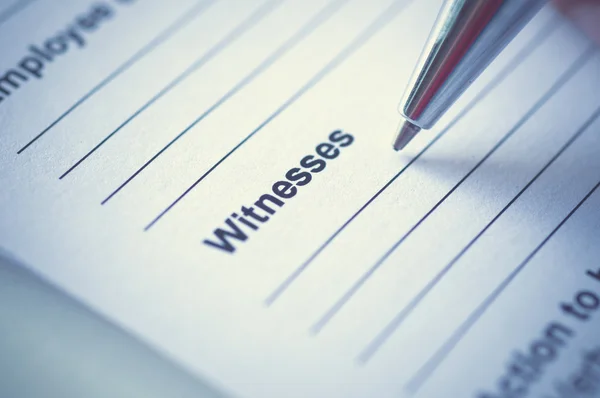
In the Catholic Times, a Research Fellow in the Catholic North East Peace Institute gives us some thought on what it means to be a witness.
After the season of Lent, we welcomed the Solemnity of the Lord's Resurrection with joy and are now heading to the Solemnity of the Ascension. Personally, during Lent, he participated in the Stations of the Cross every Friday evening with a religious group and was able to attend the Mass of the Holy Trinity and the Solemnity of the Lord's Resurrection.
One day while reading the Bible, he saw the words: "God raised him up on the third day and granted that he be seen not by all, but only by such witnesses as had been chosen beforehand by God—by us who ate and drank with him after he rose from the dead" (Acts 10:40-41). Why did Jesus appear to pre-selected witnesses rather than to all the people? Who is a witness?
Although they denied Jesus and scattered at a critical moment, the disciples who shared the joys and sorrows became witnesses of the resurrection. Mary Magdalene, the two disciples on the road to Emmaus, Thomas, etc. Clearly, the disciples were different from many Jews who did not acknowledge miracles even though they had seen them. This is because, not only the Pharisees and Sadducees, but even many people in Jesus' hometown, did not believe in Jesus.
According to the dictionary, a 'witness' is a 'third party who testifies to the court or a judge about the facts he or she has experienced.
The writer questions himself, having experienced reconciliation and peace in the Kaesong Industrial Complex— ("On February 10, 2016, the South Korean government decided to cancel cooperation with North Korea in the Kaesong Industrial Zone, arguing that the income from the zone had been used by Pyongyang to finance its nuclear and missile programs. One day later, the North froze all assets, expelled all South Koreans, and declared the zone a military security area.) This was a space for inter-Korean cooperation, and the writer wonders if he shouldn't continue to witness it.
As a 'witness', he would be obliged to make this known. Since the meaning cannot be conveyed to all the people, it is natural for 'witnesses' to make known what was experienced. Just as the Church, the People of God, have the duty to proclaim to the world the salvation and grace of the Kingdom of God.
Rough words and actions continue to be exchanged between the two Koreas because of the violent conflict of interest between the great powers. The voices of our society are gradually becoming more rigid. To some, the effort to calm this rigid atmosphere is made by those who don't know what is happening in the world. Nonetheless, ask yourself: "If you are a ‘witness’, shouldn’t you speak out like a ‘witness’?"
No comments:
Post a Comment